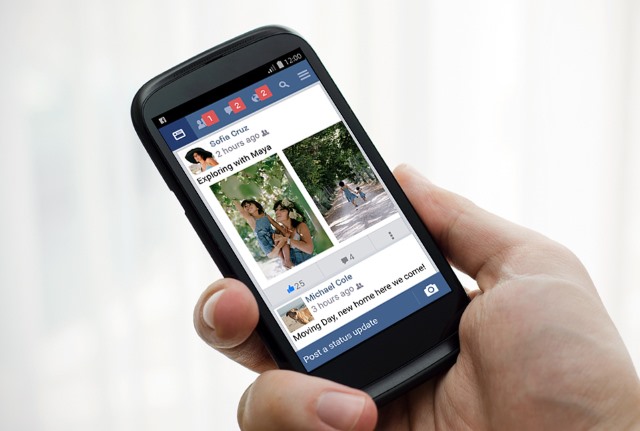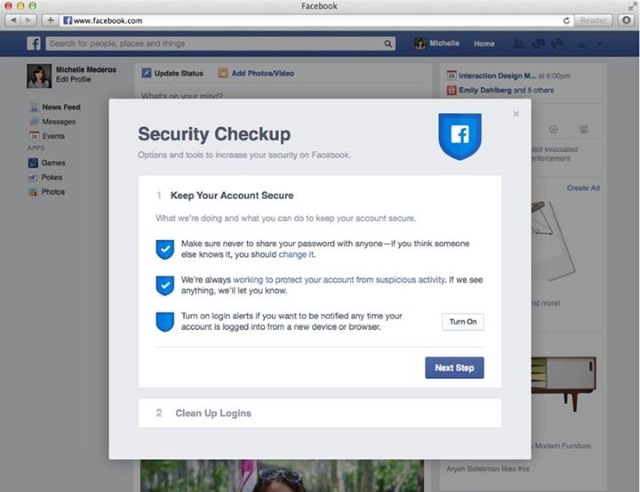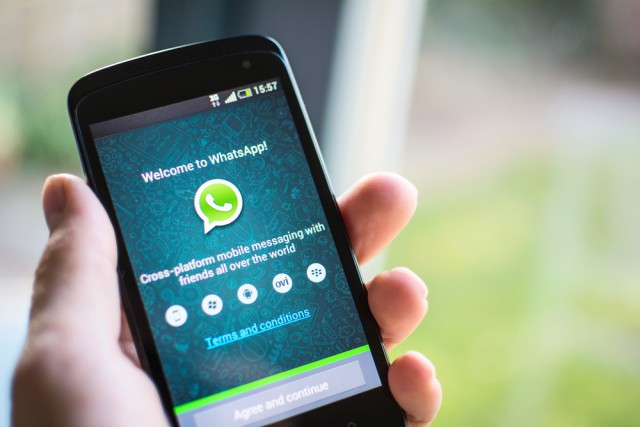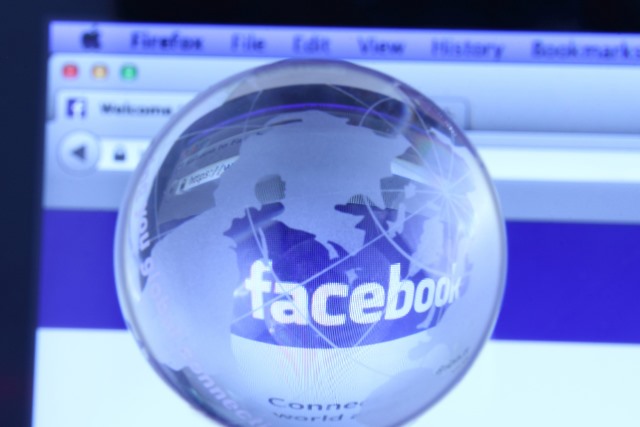
Facebook Lite gives a social fix without eating mobile data
With its Internet.org project, Facebook is trying to not only spread into new parts of the world by bringing the internet to places where it is not currently available. With a focus on minimal data usage to help keep down costs, it was only a matter of time before a stripped down version of the Facebook app appeared.
Today is the day that Facebook Lite arrives. As the name suggests, this is a data-light version of the familiar Facebook app, and it starts its life on Android devices. It is designed with developing markets in mind, and today it starts the rollout process in Asia before it spreads further around the globe.

Facebook expands AI research program
Mark Zuckerberg's Facebook is more usually associated with social networking, but the company has its fingers in plenty of other pies as well -- including Internet.org. Now the company is expanding its Facebook AI Research (FAIR) program to help with the automatic sorting and analysis of pictures, videos, text, and other data.
Facebook already has research teams looking into artificial intelligence in Menlo Park and New York, and the expansion sees the creation of a new team in Paris. The aim is create system that make it easier to manage the ever-growing quantities of data that are generated day in, day out by Facebook users.

Facebook adds support for OpenPGP email encryption
Facebook can send out quite a lot of emails to its users in the course of an average day. Notifications can fly in thick and fast letting you know about friend requests, replies to your posts, messages from contacts, and the like, and it's possible -- nay likely -- that these will contain delicate personal information.
To help calm the fear of those with privacy concerns ("why are they using Facebook?", you might well ask) Facebook today announces the introduction of OpenPGP encryption support. This gives users the opportunity to protect communication from Facebook by encrypting it so it cannot be read by unauthorized parties.

Facebook ups the ante with new Security Checkup tool
Security and Facebook are not words that generally sit well together. This is something that the social network is only too aware of, and in recent years has taken various steps to try to improve the security and privacy of individuals' accounts. The latest tool in its arsenal is the new Security Checkup.
At the moment the tool is not being made available to everyone, but those who have been chosen to test drive it will be able to use simple on-screen prompts to change their password, turn on login alerts, and clean up login sessions, all from one handy location.

Facebook Messenger video calling is now available worldwide
Facebook has announced that its new addition to Messenger, namely video calling, has now rolled out across the globe.
The video calling capability was bolted on to Messenger on both iOS and Android at the end of last month, but obviously rolling it out to every market worldwide takes some time.

Facebook could allow businesses to contact you through WhatsApp
Facebook said it might allow businesses to contact users through their chat app WhatsApp, Bloomberg said in a report on Tuesday.
This might be the first hint on how the social media giant plans on making money off the app that it bought for $22 billion (£14 billion).

Just about everyone thinks Internet.org is a terrible idea
Mark Zuckerberg probably thought the world would bow down to him when Facebook announced the Internet.org project. The idea of bringing internet access to those in developing parts of the world seems, on the face of it, to be something of an exercise in altruism. Of course, it's not quite that simple.
Many companies complain that the project goes against the idea of net neutrality -- a claim that Zuckerberg vehemently denies. But now the vocal opposition to Internet.org is getting louder. Privacy group Electronic Frontier Foundation (EFF) has several concerns with the project, and a collective of 67 digital rights groups has signed a letter to the Facebook founder expressing concerns about the approach Internet.org is taking.

10 things you don't know about Facebook
For a site like Facebook, which has become sort of a synonym for the Internet itself, it’s hard to say there are things we still don’t know about it. Everything’s already been said, everything’s been discovered and the site is as transparent as it gets.
But there are still things we (or at least some of us) still don’t know about it, and those include some awesome, but long lost and forgotten options the site has to offer, like:

Facebook rides roughshod over privacy laws
Facebook and privacy are not words that generally belong in the same sentence, but a Belgian watchdog has expressed surprise at just how little regard for European law the social network shows. The Privacy Protection Commission says "Facebook tramples on European and Belgian privacy laws", and warns users to take action.
Mark Zuckerberg's site is accused to tracking users even if they are not logged into a Facebook account, and sidestepping questions from European regulators. Although the Privacy Protection Commission is not able to impose fines for failure to abide by European law, it is in a position to offer advice -- and the advice to people is to use software to block Facebook's tracking regardless of whether they use the site or not.

How technology helps Nepal relief efforts
The earthquake that struck Nepal two weeks ago has claimed the lives of more than 8,000 people, while a second has caused the death toll to rise further still. Natural disasters such as these shine a light upon the fragility of human life when faced with powerful tectonic forces.
Despite advances in earthquake prediction, it is still nearly impossible to say exactly where and when an earthquake will strike. Experts have been predicting that a huge quake would hit Nepal eventually, but when it did there was still little that anyone could do.

New marketing tool delivers better targeted Facebook ads
The rise of social media has meant that marketers are keen to create contextual adverts that reach their target audience, but to do it in a way that isn't intrusive or annoying.
Analytics and marketing application company Teradata is launching a new solution in the form of a digital marketing capability that enables marketers to deliver highly targeted Facebook advertising as part of an integrated solution that incorporates social advertising with email, mobile and web.

Oculus Rift starts shipping Q1 2016
There's now less than a year until people will be able to get their hands on Facebook's virtual reality headset, Oculus Rift. Writing on Twitter, Oculus VR's vice president of product Nate Mitchell confirmed that the device will begin shipping in the first quarter of 2016.
The announcement was echoed on the official Oculus Twitter feed as well as in an official blog post. While the launch is slightly later than many people had hoped -- initial plans had the release pegged for some time in the latter half of 2015 -- it brings to an end months of guessing.

IBM and Facebook team up to offer tailored marketing
All advertisers are keen to use the power of the Internet to deliver the right message at the right time. From today IBM and Facebook will be collaborating on the delivery of tailored marketing to help with that process.
IBM's marketing cloud clients will be able to utilize Facebook's powerful ad capabilities such as Custom Audiences, along with IBM's deep analytics and design features, to target their customers across applications, devices and time.

Facebook launches Internet.org Platform and opens up to more developers
The aim behind Facebook's Internet.org program is to bring internet access to the wider world. While an undeniably praise-worthy venture, it came in for criticism for going against the principles of net neutrality.
Today the company launches the Internet.org Platform with a view to countering this criticism. The platform opens up Internet.org to more developers, giving them the chance to bring "free basic services" to people around the world. There's also the promise of greater transparency.

How small businesses can boost Facebook engagement
If you have a small business, and that business doesn’t have its own Facebook page, then you’re doing your business wrong.
Come on, people’s pets have Facebook fan pages, and your business doesn’t. Many will agree that having a fan page is essential to your business, but with basically everyone on there, the rules have changed.
